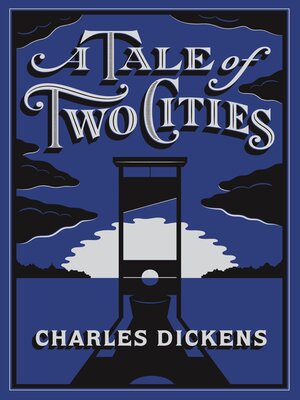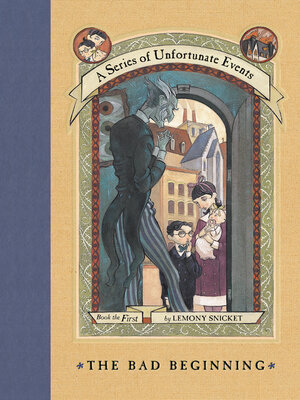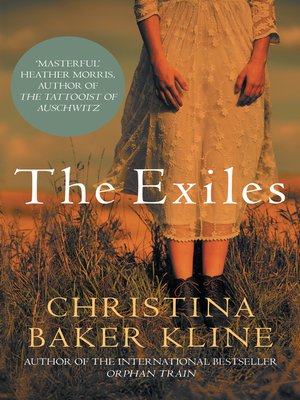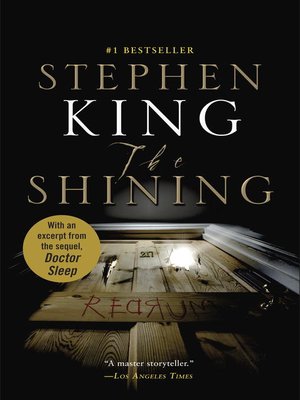Team OverDrive shares: Books that changed our perspectives on reading
By: Tiffany Wincek, Product Liaison
A dear friend of mine and her husband are reading The Count of Monte Cristo together, a tome of at least a thousand pages unabridged, depending on edition and format. It’s a book that’s been on my own TBR list for years, and one I’d selected as a priority to read in 2024, but my friend warned its archaic language and lengthy descriptions could be discouraging at best and a downright slog at worst. Still, she kept reading.
This morning, the same friend said to me, “So, The Count of Monte Cristo is worth the payoff.” And isn’t that the beauty of reading? You never know how a book might change you, how a story and its characters can seep into the soil of your life, impacting our future selves in ways both subtle and significant.
In today’s post, Team OverDrive shares their stories of books that changed their perspectives on reading.

-Sam, Developer

-Katie, Product Liaison
 “I have read a lot of historical fiction in my life, and honestly, a lot of the titles blend together in my brain. One exception is The Exiles by Christina Baker Kline because I have never read (before or since) a book with a narrative structure quite like it. I am being purposefully vague because the narrative structure involves major spoilers—but I’ll say this, every person I’ve recommended this book to has called me at the halfway point to say ‘what just happened?!’
“I have read a lot of historical fiction in my life, and honestly, a lot of the titles blend together in my brain. One exception is The Exiles by Christina Baker Kline because I have never read (before or since) a book with a narrative structure quite like it. I am being purposefully vague because the narrative structure involves major spoilers—but I’ll say this, every person I’ve recommended this book to has called me at the halfway point to say ‘what just happened?!’
The Exiles is about Evangeline, a young governess in England who is seduced by her employer’s son. Upon becoming pregnant, she is sent to prison on a transport ship to Van Diemen’s Land, an Australian penal colony in modern day Tasmania. Because of the length of the voyage, Evangeline knows her child will be born on the ship, but she meets another young woman, Hazel, who is a practiced midwife. As the ship docks in Australia, another young woman, Mathinna, a member of the First Nations of Australia (formerly called Aboriginal) is introduced.
The stories of Evangeline, Hazel, and Mathinna show how unfair life can be but also the opportunities that can be found through female friendship, even in as punishing an environment as Van Diemen’s Land.”
-Hannah, Team Lead
 “How do we measure the value of reading? Is it the quality of the book? Is it the reputation of the author? Is it the improvement in reading scores by our students?
“How do we measure the value of reading? Is it the quality of the book? Is it the reputation of the author? Is it the improvement in reading scores by our students?
When I became a high school Library Media Specialist, I envisioned myself sharing my love of reading with my students by recommending my favorite titles to them and having them thank me and love the books much as I did. I imagined discussions around plot, characters, settings, and themes. Because I loved certain genres and authors, I thought I could share that with all my students, and they would join me in that love and enthusiasm. You are laughing now, aren’t you? It took all of about one month for me to realize my mistake.
The high school English teacher, who was a good friend and valued colleague for her own love of reading, had a policy of allowing students to come to the media center whenever they finished their work. Over and over, a student would come in asking for any book by Stephen King. I couldn’t figure out why, since I did not enjoy the genre of horror in print or on film, and King was not an author I found interesting. I finally asked why they wanted those titles in particular, and it turned out Stephen King was one of the teacher’s favorite authors! After silently sighing, I showed the student where the section of King books was and swallowed my own pride to ask which was their favorite. Their face lit up and they launched into a long description of every title they had read and how they could not choose just one…and I realized they were doing for me what I had dreamed of doing for them. They were showing me the value of reading. I learned that day to ask and listen first.”
-Robbie, Digital Content Librarian
“If my hometown ever held one of those open mic nights where people could come read their embarrassing high school poetry, mine would win ‘Cringiest Take from A High Schooler’ by a landslide. That said, I never really understood poetry, even as I penned it furiously. As I got older and switched from bad verse to bad journal entries (RIP LiveJournal), the purpose of poetry evaded me completely. Back then, it always felt like an abbreviation, an unfinished thought. Why use verse to convey an emotion or an event when you could use prose—or even better, song lyrics?
This misunderstanding plagued me throughout my early twenties, ribboning through my adult milestones. I listened to music instead of reading poems to get me through my failed relationships and workplace drama; I slogged through Very Important NovelsTM instead of letting myself be immersed in the profundity, cheer, or escapist fantasy of poems.
Thankfully, poetry and I found each other again, like long-lost pen pals crossing an ocean to meet. Many, many poets contributed to this reunion, but one chapbook sticks out in my mind as the touchstone of this revelation: Applies to Oranges by Maureen Thorson.
According to the publisher, Applies to Oranges is, “a mythic tale of loss and a microscopic look into the delicate beauty of broken things”; but to me it’s a map home, kintsugi performed on a fractured heart.”
– Sydney, Manager
I hope these stories inspire you to pick up one of the titles mentioned, more willingly accept book recommendations from those you trust, or just take more risks in your 2024 reading life.
Now, if you’ll excuse me, it’s time to crack open my own copy of Dumas’ famous work.
About the Author
Tiffany Wincek, the Product Liaison for OverDrive Education, taught in New York public schools for 10 years prior to joining Team OverDrive. She holds degrees in English, education, and literacy and loves making authentic connections with and providing solutions for OverDrive partners. In her spare time, she enjoys reading, baking, lifting heavy things, and listening to nothing but Nothing But Thieves.
Read more
Love hearing about what Team OverDrive is reading? Check out these other books that changed our lives, stuck in our memories and reminded us why we love reading in the first place!
Tags In
Browse blog and media articles
Public Library Training
K-12 Library Training
